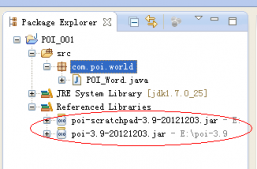最近再開發(fā)中遇到需要將文件上傳到linux服務(wù)器上,至此整理代碼筆記。
此種連接方法中有考慮到并發(fā)問題,在進(jìn)行創(chuàng)建ftp連接的時候?qū)⒚恳粋€連接對象存放至
threadlocal<ftp> 中以確保每個線程之間對ftp的打開與關(guān)閉互不影響。
|
1
2
3
4
5
6
7
8
9
10
11
12
13
14
15
16
17
18
19
20
21
22
23
24
25
26
27
28
29
30
31
32
33
34
35
36
37
38
39
40
41
42
43
44
45
46
47
48
49
50
51
52
53
54
55
56
57
58
59
60
61
62
63
64
65
66
67
68
69
70
71
72
73
74
75
76
77
78
79
80
81
82
83
84
85
86
87
88
89
90
91
92
93
94
95
96
97
98
99
100
101
102
103
104
105
106
107
108
109
110
111
112
113
114
115
116
117
118
119
120
121
122
123
124
125
126
127
128
129
130
131
132
133
134
135
136
137
138
139
140
141
142
143
144
145
146
147
148
149
150
151
152
153
154
155
156
|
package com.test.utils;import java.io.bufferedinputstream;import java.io.file;import java.io.filefilter;import java.io.fileinputstream;import java.io.inputstream;import java.util.arraylist;import java.util.date;import java.util.list;import org.apache.commons.logging.log;import org.apache.commons.logging.logfactory;import com.jcraft.jsch.channelsftp;import com.jcraft.jsch.jsch;import com.jcraft.jsch.session;public class ftp { //打印log日志 private static final log logger = logfactory.getlog(ftp.class); private static date last_push_date = null; private session sshsession; private channelsftp channel; private static threadlocal<ftp> sftplocal = new threadlocal<ftp>(); private ftp(string host, int port, string username, string password) throws exception { jsch jsch = new jsch(); jsch.getsession(username, host, port); //根據(jù)用戶名,密碼,端口號獲取session sshsession = jsch.getsession(username, host, port); sshsession.setpassword(password); //修改服務(wù)器/etc/ssh/sshd_config 中 gssapiauthentication的值yes為no,解決用戶不能遠(yuǎn)程登錄 sshsession.setconfig("userauth.gssapi-with-mic", "no"); //為session對象設(shè)置properties,第一次訪問服務(wù)器時不用輸入yes sshsession.setconfig("stricthostkeychecking", "no"); sshsession.connect(); //獲取sftp通道 channel = (channelsftp)sshsession.openchannel("sftp"); channel.connect(); logger.info("連接ftp成功!" + sshsession); } /** * 是否已連接 * * @return */ private boolean isconnected() { return null != channel && channel.isconnected(); } /** * 獲取本地線程存儲的sftp客戶端 * * @return * @throws exception */ public static ftp getsftputil(string host, int port, string username, string password) throws exception { //獲取本地線程 ftp sftputil = sftplocal.get(); if (null == sftputil || !sftputil.isconnected()) { //將新連接防止本地線程,實現(xiàn)并發(fā)處理 sftplocal.set(new ftp(host, port, username, password)); } return sftplocal.get(); } /** * 釋放本地線程存儲的sftp客戶端 */ public static void release() { if (null != sftplocal.get()) { sftplocal.get().closechannel(); logger.info("關(guān)閉連接" + sftplocal.get().sshsession); sftplocal.set(null); } } /** * 關(guān)閉通道 * * @throws exception */ public void closechannel() { if (null != channel) { try { channel.disconnect(); } catch (exception e) { logger.error("關(guān)閉sftp通道發(fā)生異常:", e); } } if (null != sshsession) { try { sshsession.disconnect(); } catch (exception e) { logger.error("sftp關(guān)閉 session異常:", e); } } } /** * @param directory 上傳ftp的目錄 * @param uploadfile 本地文件目錄 * */ public void upload(string directory, string uploadfile) throws exception { try {<br> //執(zhí)行列表展示ls 命令 channel.ls(directory);<br> //執(zhí)行盤符切換cd 命令 channel.cd(directory); list<file> files = getfiles(uploadfile, new arraylist<file>()); for (int i = 0; i < files.size(); i++) { file file = files.get(i); inputstream input = new bufferedinputstream(new fileinputstream(file)); channel.put(input, file.getname()); try { if (input != null) input.close(); } catch (exception e) { e.printstacktrace(); logger.error(file.getname() + "關(guān)閉文件時.....異常!" + e.getmessage()); } if (file.exists()) { boolean b = file.delete(); logger.info(file.getname() + "文件上傳完畢!刪除標(biāo)識:" + b); } } }catch (exception e) { logger.error("【子目錄創(chuàng)建中】:",e); //創(chuàng)建子目錄 channel.mkdir(directory); } } //獲取文件 public list<file> getfiles(string realpath, list<file> files) { file realfile = new file(realpath); if (realfile.isdirectory()) { file[] subfiles = realfile.listfiles(new filefilter() { @override public boolean accept(file file) { if (null == last_push_date ) { return true; } else { long modifydate = file.lastmodified(); return modifydate > last_push_date.gettime(); } } }); for (file file : subfiles) { if (file.isdirectory()) { getfiles(file.getabsolutepath(), files); } else { files.add(file); } if (null == last_push_date) { last_push_date = new date(file.lastmodified()); } else { long modifydate = file.lastmodified(); if (modifydate > last_push_date.gettime()) { last_push_date = new date(modifydate); } } } } return files; }} |
總結(jié)
以上所述是小編給大家介紹的java遠(yuǎn)程連接linux服務(wù)器并執(zhí)行命令及上傳文件,希望對大家有所幫助如果大家有任何疑問歡迎給我留言,小編會及時回復(fù)大家的!
原文鏈接:https://www.cnblogs.com/staticking/p/9082648.html















